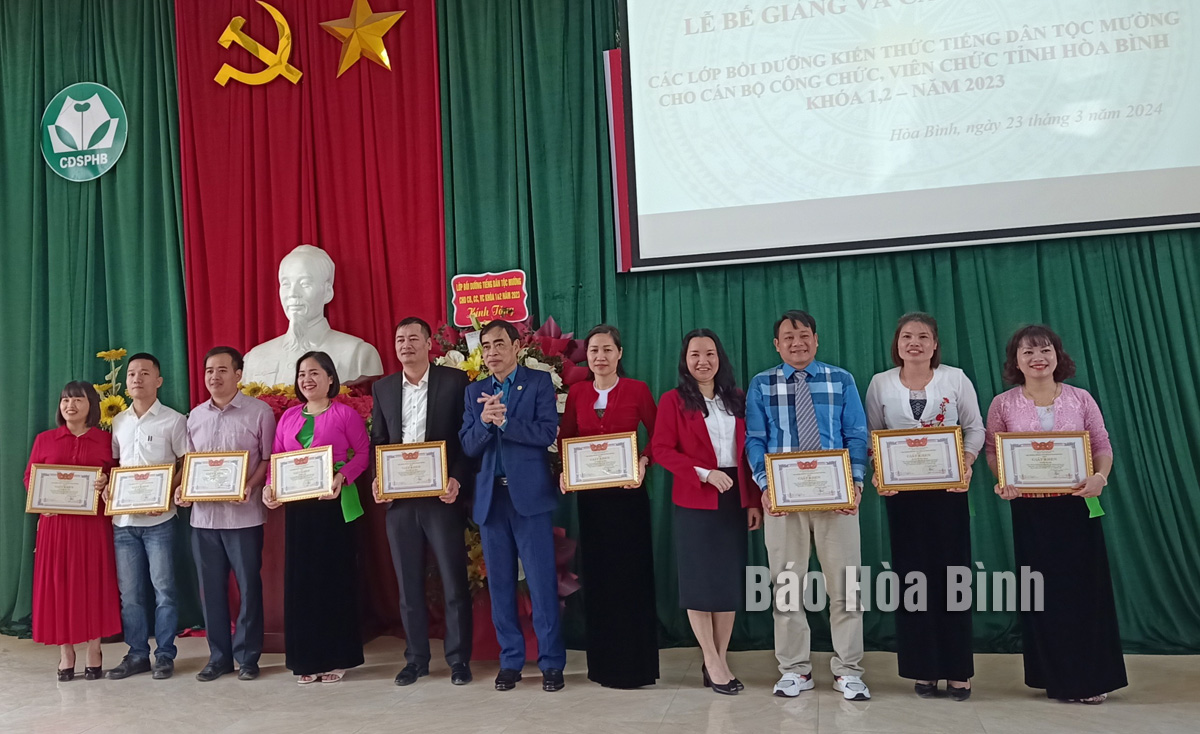



The leaders of the Department of Education and Training, Hoa Binh Pedagogical College were awarding the certificates of merit to the excellent students.
During 3 months, 119 students who are the officials, civil servants, and public employees working at Party’s agencies, departments, branches, the People's Committees of the districts, the wards, the communes and the schools in the province were able to study and research 40 lessons in 2 parts. Part 1, introduces the Muong script: writing system, rhymes, tones, percussion of Muong script; Instructions for installing and using Muong percussion. Part 2 includes the lessons integrating Muong language knowledge and skills. At the same time, the college organized the field trips to Van Son commune, Tan Lac district so that the learners were able to communicate directly with Muong ethnic people to improve their ability to speak and write common words in ethe everyday life, which met the purposes and requirements of the training class.
The training class has completed the set content, program, and goals. The learners listened, understood, wrote and spoke fluently in the Muong ethnic language. As a result, 100% of the learners participating in the graduation exam had their results recognized and issued certificates, of which 118 students were ranked excellent, 1 student was ranked good.
At the closing ceremony, the college rewarded 10 students with othe utstanding and positive achievements in the course.
The training class aims to help the officials, civil servants and public employees improve their understanding of the traditional culture, customs and traditions, contributing to preserving and promoting the spoken and written language of Muong ethnic group in Hoa Binh province. At the same time, it helps equip with the ability to use the spoken and written language, and communicate in Muong language, meeting the requirements for diplomas and certificates in appointing, promoting the civil servants, and promoting the civil servants to ensure the occupation standards and job position according to the current regulations.